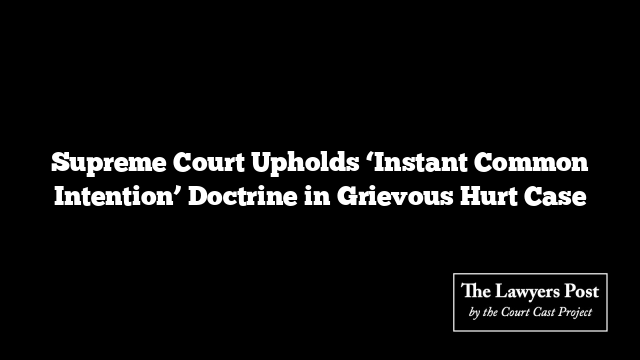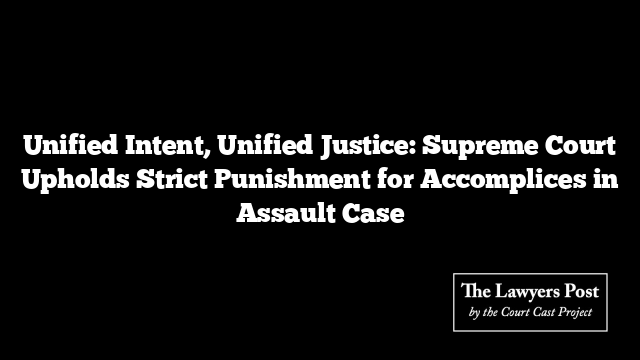In a pivotal judgment, the Supreme Court reaffirmed that common intention under Section 34 of the Indian Penal Code can arise spontaneously during an incident, requiring no prior planning. This ruling stemmed from a violent altercation over a property dispute.
The conflict unfolded when the complainant sought to resolve a dispute with one of the accused, only for the latter’s son to escalate the situation by brandishing a knife and stabbing the complainant. Another son joined with a chopper, inflicting injuries. Both were armed, acting together in a coordinated assault.
While the trial court convicted all involved, the High Court acquitted one accused, citing insufficient evidence, and downgraded the charges against another, reasoning that the injuries caused were minor. However, the Supreme Court overturned this leniency, emphasizing that both sons acted with a shared intention, making them equally culpable under Section 34 IPC.
The Court clarified that common intention does not require meticulous pre-planning. It can emerge in the heat of the moment, as evidenced by the coordinated attack. Noting inconsistencies in the High Court’s reasoning, the bench reinstated convictions for grievous hurt, ensuring uniform accountability.
This judgment underscores the judiciary’s resolve to interpret common intention dynamically, reinforcing its application in spontaneous criminal acts.





